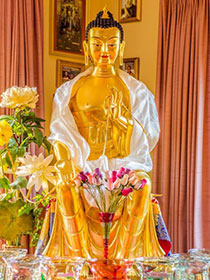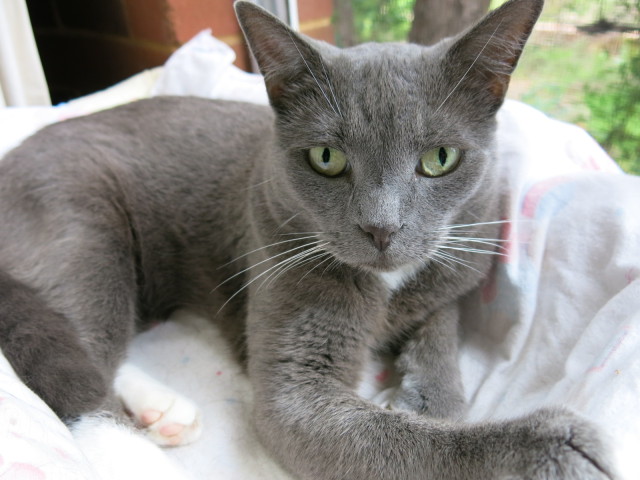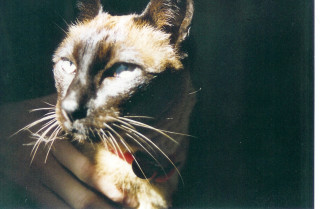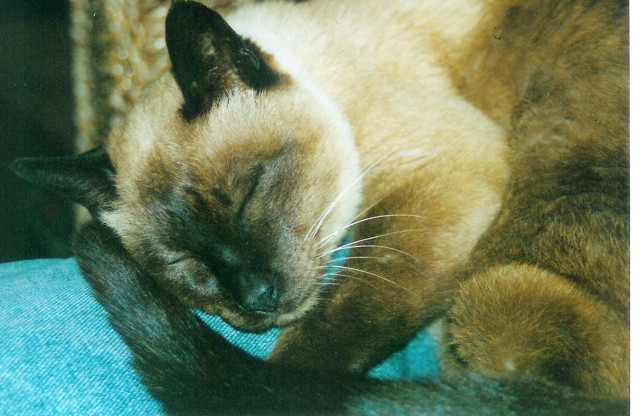- Home
- FPMT Homepage
Foundation for the Preservation of the Mahayana Tradition
The FPMT is an organization devoted to preserving and spreading Mahayana Buddhism worldwide by creating opportunities to listen, reflect, meditate, practice and actualize the unmistaken teachings of the Buddha and based on that experience spreading the Dharma to sentient beings. We provide integrated education through which people’s minds and hearts can be transformed into their highest potential for the benefit of others, inspired by an attitude of universal responsibility and service. We are committed to creating harmonious environments and helping all beings develop their full potential of infinite wisdom and compassion. Our organization is based on the Buddhist tradition of Lama Tsongkhapa of Tibet as taught to us by our founders Lama Thubten Yeshe and Lama Thubten Zopa Rinpoche.
- Willkommen
Die Stiftung zur Erhaltung der Mahayana Tradition (FPMT) ist eine Organisation, die sich weltweit für die Erhaltung und Verbreitung des Mahayana-Buddhismus einsetzt, indem sie Möglichkeiten schafft, den makellosen Lehren des Buddha zuzuhören, über sie zur reflektieren und zu meditieren und auf der Grundlage dieser Erfahrung das Dharma unter den Lebewesen zu verbreiten.
Wir bieten integrierte Schulungswege an, durch denen der Geist und das Herz der Menschen in ihr höchstes Potential verwandelt werden zum Wohl der anderen – inspiriert durch eine Haltung der universellen Verantwortung und dem Wunsch zu dienen. Wir haben uns verpflichtet, harmonische Umgebungen zu schaffen und allen Wesen zu helfen, ihr volles Potenzial unendlicher Weisheit und grenzenlosen Mitgefühls zu verwirklichen.
Unsere Organisation basiert auf der buddhistischen Tradition von Lama Tsongkhapa von Tibet, so wie sie uns von unseren Gründern Lama Thubten Yeshe und Lama Thubten Zopa Rinpoche gelehrt wird.
- Bienvenidos
La Fundación para la preservación de la tradición Mahayana (FPMT) es una organización que se dedica a preservar y difundir el budismo Mahayana en todo el mundo, creando oportunidades para escuchar, reflexionar, meditar, practicar y actualizar las enseñanzas inconfundibles de Buda y en base a esa experiencia difundir el Dharma a los seres.
Proporcionamos una educación integrada a través de la cual las mentes y los corazones de las personas se pueden transformar en su mayor potencial para el beneficio de los demás, inspirados por una actitud de responsabilidad y servicio universales. Estamos comprometidos a crear ambientes armoniosos y ayudar a todos los seres a desarrollar todo su potencial de infinita sabiduría y compasión.
Nuestra organización se basa en la tradición budista de Lama Tsongkhapa del Tíbet como nos lo enseñaron nuestros fundadores Lama Thubten Yeshe y Lama Zopa Rinpoche.
A continuación puede ver una lista de los centros y sus páginas web en su lengua preferida.
- Bienvenue
L’organisation de la FPMT a pour vocation la préservation et la diffusion du bouddhisme du mahayana dans le monde entier. Elle offre l’opportunité d’écouter, de réfléchir, de méditer, de pratiquer et de réaliser les enseignements excellents du Bouddha, pour ensuite transmettre le Dharma à tous les êtres. Nous proposons une formation intégrée grâce à laquelle le cœur et l’esprit de chacun peuvent accomplir leur potentiel le plus élevé pour le bien d’autrui, inspirés par le sens du service et une responsabilité universelle. Nous nous engageons à créer un environnement harmonieux et à aider tous les êtres à épanouir leur potentiel illimité de compassion et de sagesse. Notre organisation s’appuie sur la tradition guéloukpa de Lama Tsongkhapa du Tibet, telle qu’elle a été enseignée par nos fondateurs Lama Thoubtèn Yéshé et Lama Zopa Rinpoché.
Visitez le site de notre Editions Mahayana pour les traductions, conseils et nouvelles du Bureau international en français.
Voici une liste de centres et de leurs sites dans votre langue préférée
- Benvenuto
L’FPMT è un organizzazione il cui scopo è preservare e diffondere il Buddhismo Mahayana nel mondo, creando occasioni di ascolto, riflessione, meditazione e pratica dei perfetti insegnamenti del Buddha, al fine di attualizzare e diffondere il Dharma fra tutti gli esseri senzienti.
Offriamo un’educazione integrata, che può trasformare la mente e i cuori delle persone nel loro massimo potenziale, per il beneficio di tutti gli esseri, ispirati da un’attitudine di responsabilità universale e di servizio.
Il nostro obiettivo è quello di creare contesti armoniosi e aiutare tutti gli esseri a sviluppare in modo completo le proprie potenzialità di infinita saggezza e compassione.
La nostra organizzazione si basa sulla tradizione buddhista di Lama Tsongkhapa del Tibet, così come ci è stata insegnata dai nostri fondatori Lama Thubten Yeshe e Lama Zopa Rinpoche.
Di seguito potete trovare un elenco dei centri e dei loro siti nella lingua da voi prescelta.
- 欢迎 / 歡迎
简体中文
“护持大乘法脉基金会”( 英文简称:FPMT。全名:Foundation for the Preservation of the Mahayana Tradition) 是一个致力于护持和弘扬大乘佛法的国际佛教组织。我们提供听闻,思维,禅修,修行和实证佛陀无误教法的机会,以便让一切众生都能够享受佛法的指引和滋润。
我们全力创造和谐融洽的环境, 为人们提供解行并重的完整佛法教育,以便启发内在的环宇悲心及责任心,并开发内心所蕴藏的巨大潜能 — 无限的智慧与悲心 — 以便利益和服务一切有情。
FPMT的创办人是图腾耶喜喇嘛和喇嘛梭巴仁波切。我们所修习的是由两位上师所教导的,西藏喀巴大师的佛法传承。
繁體中文
護持大乘法脈基金會”( 英文簡稱:FPMT。全名:Found
ation for the Preservation of the Mahayana Tradition ) 是一個致力於護持和弘揚大乘佛法的國際佛教組織。我們提供聽聞, 思維,禪修,修行和實證佛陀無誤教法的機會,以便讓一切眾生都能 夠享受佛法的指引和滋潤。 我們全力創造和諧融洽的環境,
為人們提供解行並重的完整佛法教育,以便啟發內在的環宇悲心及責 任心,並開發內心所蘊藏的巨大潛能 — 無限的智慧與悲心 – – 以便利益和服務一切有情。 FPMT的創辦人是圖騰耶喜喇嘛和喇嘛梭巴仁波切。
我們所修習的是由兩位上師所教導的,西藏喀巴大師的佛法傳承。 察看道场信息:
- FPMT Homepage
- News/Media
-
- Study & Practice
-
-
- About FPMT Education Services
- Latest News
- Programs
- New to Buddhism?
- Buddhist Mind Science: Activating Your Potential
- Heart Advice for Death and Dying
- Discovering Buddhism
- Living in the Path
- Exploring Buddhism
- FPMT Basic Program
- FPMT Masters Program
- FPMT In-Depth Meditation Training
- Maitripa College
- Lotsawa Rinchen Zangpo Translator Program
- Universal Education for Compassion & Wisdom
- Online Learning Center
-
- Prayers & Practice Materials
- Overview of Prayers & Practices
- Full Catalogue of Prayers & Practice Materials
- Explore Popular Topics
- Benefiting Animals
- Chenrezig Resources
- Death & Dying Resources
- Lama Chopa (Guru Puja)
- Lama Zopa Rinpoche: Compendium of Precious Instructions
- Lama Zopa Rinpoche: Life Practice Advice
- Lama Zopa Rinpoche Practice Series
- Lamrim Resources
- Mantras
- Prayer Book Updates
- Purification Practices
- Sutras
- Thought Transformation (Lojong)
- Audio Materials
- Dharma Dates - Tibetan Calendar
- Translation Services
- Publishing Services
- Ways to Offer Support
- Prayers & Practice Materials
-
- Teachings and Advice
- Find Teachings and Advice
- Lama Zopa Rinpoche Advice Page
- Lama Zopa Rinpoche: Compendium of Precious Instructions
- Lama Zopa Rinpoche Video Teachings
- ༧སྐྱབས་རྗེ་བཟོད་པ་རིན་པོ་ཆེ་མཆོག་ནས་སྩལ་བའི་བཀའ་སློབ་བརྙན་འཕྲིན།
- Podcasts
- Lama Yeshe Wisdom Archive
- Buddhism FAQ
- Dharma for Young People
- Resources on Holy Objects
- Teachings and Advice
-
-
*If a menu item has a submenu clicking once will expand the menu clicking twice will open the page.
-
-
- Centers
-
- Teachers
-
- Projects
-
-
-
-
*If a menu item has a submenu clicking once will expand the menu clicking twice will open the page.
-
-
- FPMT
-
- Shop
-
-
-
The Foundation Store is FPMT’s online shop and features a vast selection of Buddhist study and practice materials written or recommended by our lineage gurus. These items include homestudy programs, prayers and practices in PDF or eBook format, materials for children, and other resources to support practitioners.
Items displayed in the shop are made available for Dharma practice and educational purposes, and never for the purpose of profiting from their sale. Please read FPMT Foundation Store Policy Regarding Dharma Items for more information.
-
-
13
A Buddhist’s Loss of a Beloved Pet
By Tania Duratovic
‘How Long Will It All Take?’
Today I found out that one of our loving cats, Pema, has got cancer. It is in her nose and her throat and there is not much anyone can do. On the phone, the veterinarian even offered to my husband that since she is currently under anaesthetic, they could leave her there, i.e., let her die there and then.
I am looking at a photo of her I have on my laptop as I write this. I am in Kopan Monastery, Kathmandu, Nepal, thousands of miles away from Pema at home in Sydney, Australia, with my husband. Tears are streaming down my face, but not necessarily because she is going to die very soon, but because before she does, she will have to undergo great physical suffering of which I cannot explain to her nor can I do a lot to ease.
The veterinarian, when offering the choice to “euthanize” Pema, did so in the belief that this was a good option to avoid her suffering. However, as Buddhists, doing such a thing is prematurely ending another’s life, i.e., killing, even though one believes one is doing so out of compassion. The suffering that being is experiencing will still need to be experienced somewhere, sometime and may even end up being greater.
But when we as Buddhists choose to “put down” an animal, what really is our motivation? Ending our suffering or our pets’? I know I am totally dreading when Pema’s cancer starts to take more of an effect and she begins to feel the pain and miserableness of it all. I feel for my husband who is all alone at home trying to deal with this. I am torn between rushing home and leaving my work here at the Animal Liberation Sanctuary or staying to take care of the animals’ needs here, which are many. Much of me wants to see Pema, to stroke her, to say soothing words to her, but another part of me doesn’t want to see her deteriorate or have to say goodbye.
Pema for the moment is reasonably OK. She is still talkative, though perhaps a little less, and is still, thank goodness, eating, although has lost a substantial amount of weight. “How long will it all take?” I ask over the phone. I know the answer. There is none – no one knows. Why? Because most people do not wait to find out how long it takes for their pet to die. They choose the option to euthanize.
It Was Apparent That Max Needed Help
We have had this experience a few times, though in no way does it make this time any easier. I recall one cat we rescued, Max. He was quite an old boy, 15, and was a Tonkinese. He was very attached to his “owners,” but the father died and the rest of the family didn’t want to keep him for various reasons. We adopted him knowing that he didn’t otherwise have much of a chance given his age (and his demanding cries for attention!) We had Pema at the time. She was probably about two years old. One evening we came home from our Dharma center and Pema charged down the hall and it looked like she had bowled Max over. He suddenly started to walk a bit funny. This rapidly worsened and he began dragging his back legs. We thought Pema had hurt him accidentally.
It was 11 p.m. and it was apparent that Max needed help. We rushed him to one of the three 24-hour emergency clinics we have in Sydney, which fortunately for all of us, is not too far from our home. Max was in a huge amount of pain.
To cut a long story short, Max suffered some form of paralysis from a clot. The vets gave us the option of “putting him down” or trying this fancy expensive medication, which they weren’t sure would work anyway. We opted for the fancy medication. Before we left Max there in the hospital, we asked them to put some drops of blessed water and crushed mani pill into his drinking water every day and stick a picture of His Holiness on his cage. We gave instructions that if he died, they were to touch his head first with a picture of a stupa we left them. (Anything more would have been even weirder than all this already was to them.) Max survived the night. And the night after that. We visited him in hospital for a week. The staff were all amazed that not only had he survived, but he was starting to get feeling back in his legs. One of the vet nurses decided it was “the holy water.” He declared to us that he had been to Thailand and seen some “Buddhist stuff” there.
Max came home with us at the end of the week. Gradually he got feeling back in all of his legs except for the very tip on his toes on one foot. Pema was happy to see him, although after spending his previous life as the sole cat of the household, I’m not sure Max felt the same about seeing her!
Max also had a heart condition, we discovered, so he was on daily medication for that. Then he developed water in his lungs, so more medicines. But he was still happy Max. About 18 months later, we noticed that he was looking at his bowl of water for long periods of time but not drinking. We had recently nursed my parents’ Siamese cat through renal failure till he died, so we knew the signs. We were sure Max must have it too. But I had to be sure 100% just in case it was something else that we could treat. Reluctantly, my husband took Max up to the 24-hour hospital to see the feline specialist. He had a meeting that afternoon, so dropped Max off before hand to have some tests done and would pick him up on his way home afterwards.
When it came time to pick up Max, my husband asked the hospital staff if he was ready to go home and what the test results showed. It turned out they did not do any tests. They concluded that indeed he did have renal failure and should remain in hospital and really should be euthanized. My husband tried to explain that this was not an option we wanted to take: we wanted Max to come home and die there with us; we have certain religious beliefs which preclude killing and Max hates the hospital and would much rather be at home.
The vet was pretty furious. She accused us of being cruel and negligent and said if she was back home in England, she would have the legal right to keep Max regardless of what we wanted. Fortunately for us, in Australia, she couldn’t do this. My husband tried to reassure her and said that if things get worse, he will call the local vet. She reluctantly conceded and left his cannula in so that the local vet could come around and basically euthanize him. And she then proceeded to ring around all the local vets in the area and tell them about us, these crazy and cruel Buddhists!
It was a very difficult and emotional time. We kept questioning whether we were doing the right thing, questioning what is the right thing by the Buddhadharma and for Max. We asked several of our teachers for advice, but we knew what really was right. We knew that even euthanasia is still killing, unless one has great compassion and can see the karma of that sentient being in question, which I definitely didn’t have. We certainly didn’t want Max to have to go through this suffering again if we decided to cut his karma short in this life. But the biggest suffering really, if I’m honest, was that we didn’t want to see Max suffering. It was our feelings of helplessness and not knowing that kept questioning things. How long could we cope with this? Will it take Max a couple of days to die or a week or a few weeks? That was the most difficult part. No veterinarian could give us an answer.
When Max came home from the hospital, he was quite peeved with us. He hated vet clinics so he turned his back on us, literally, and ignored us. Worse was that he was groggy from the drugs they gave him and clearly resented this also. When the drugs wore off, he actually seemed more comfortable and seemingly grudgingly partially forgave us for putting him through the trauma of the hospital visit. It was clear that the discomfort that he was in was not as bad as the mental discomfort of being at the vets. Pet owners can attest to the loathing pets have for the pet carrier when forced to go for a check up, but the pleasure of the same object for the return trip.
We circumambulated Max around holy objects we have set up in the house for that purpose as often as we could without disturbing him too much. And he had CDs of mantras and prayers playing constantly. He slept a lot of the time. We slept very little. The next morning my husband crouched down to check him and when his knees cracked, Max jumped up. Poor Max. The fright was not comfortable for him. By now it was painful for him to move or be moved. I stayed home from work to be with him all day.
The next morning around 5 a.m. we heard him make a noise. I knew that sound, having heard it before. We rushed out, picked him up as gently as we could, and madly began circumambulating with him, the mantras from the CD blaring out while we also recited loudly into his ears ourselves. Then it was the final spasms and he was gone.
Fortunate Max. His physical suffering wasn’t too long (and so neither was our emotional suffering) and he died circumambulating. Yes, it was a good death for a cat. But Pema? I’m not sure. And being thousands of miles away from her, right now, all I can do is go up to the beautiful stupas here, make light offerings, pray, and place my faith in the Guru, Buddha, Dharma and Sangha.
FPMT makes it easy to support animals in a variety of different ways. Enlightenment for the Dear Animals, directed by Tania Duratovic and Phil Hunt, provides advice, news and links to projects and people who are helping animals around the world. Tania and Phil also serve as coordinators for the Animal Liberation Sanctuary, created near Kopan Monastery in Nepal to house animals that were to be killed so that they may live out the natural course of their lives in peace and gain a higher rebirth.
You can also support FPMT’s Animal Liberation Fund, a fund that directly supports Lama Zopa Rinpoche’s wishes to protect animals from danger and expose them to the Dharma.
- Tagged: animals, mandala, tania duratovic
- 0
- Home
- News/Media
- Study & Practice
- About FPMT Education Services
- Latest News
- Programs
- New to Buddhism?
- Buddhist Mind Science: Activating Your Potential
- Heart Advice for Death and Dying
- Discovering Buddhism
- Living in the Path
- Exploring Buddhism
- FPMT Basic Program
- FPMT Masters Program
- FPMT In-Depth Meditation Training
- Maitripa College
- Lotsawa Rinchen Zangpo Translator Program
- Universal Education for Compassion & Wisdom
- Online Learning Center
- Prayers & Practice Materials
- Overview of Prayers & Practices
- Full Catalogue of Prayers & Practice Materials
- Explore Popular Topics
- Benefiting Animals
- Chenrezig Resources
- Death & Dying Resources
- Lama Chopa (Guru Puja)
- Lama Zopa Rinpoche: Compendium of Precious Instructions
- Lama Zopa Rinpoche: Life Practice Advice
- Lama Zopa Rinpoche Practice Series
- Lamrim Resources
- Mantras
- Prayer Book Updates
- Purification Practices
- Sutras
- Thought Transformation (Lojong)
- Audio Materials
- Dharma Dates – Tibetan Calendar
- Translation Services
- Publishing Services
- Teachings and Advice
- Find Teachings and Advice
- Lama Zopa Rinpoche Advice Page
- Lama Zopa Rinpoche: Compendium of Precious Instructions
- Lama Zopa Rinpoche Video Teachings
- ༧སྐྱབས་རྗེ་བཟོད་པ་རིན་པོ་ཆེ་མཆོག་ནས་སྩལ་བའི་བཀའ་སློབ་བརྙན་འཕྲིན།
- Podcasts
- Lama Yeshe Wisdom Archive
- Buddhism FAQ
- Dharma for Young People
- Resources on Holy Objects
- Ways to Offer Support
- Centers
- Affiliates Area
- Teachers
- Projects
- Charitable Projects
- Make a Donation
- Applying for Grants
- News about Projects
- Other Projects within FPMT
- Support International Office
- Projects Photo Galleries
- Give Where Most Needed
- FPMT
- Shop
Subscribe to FPMT News
Translate*
*powered by Google TranslateTranslation of pages on fpmt.org is performed by Google Translate, a third party service which FPMT has no control over. The service provides automated computer translations that are only an approximation of the websites' original content. The translations should not be considered exact and only used as a rough guide.Each one of us is responsible for all other living beings’ happiness besides our own. As a result, your loving kindness is the most wish fulfilling thing in life, more precious than anything else in the world. That makes for a most satisfying, fulfilling life.











